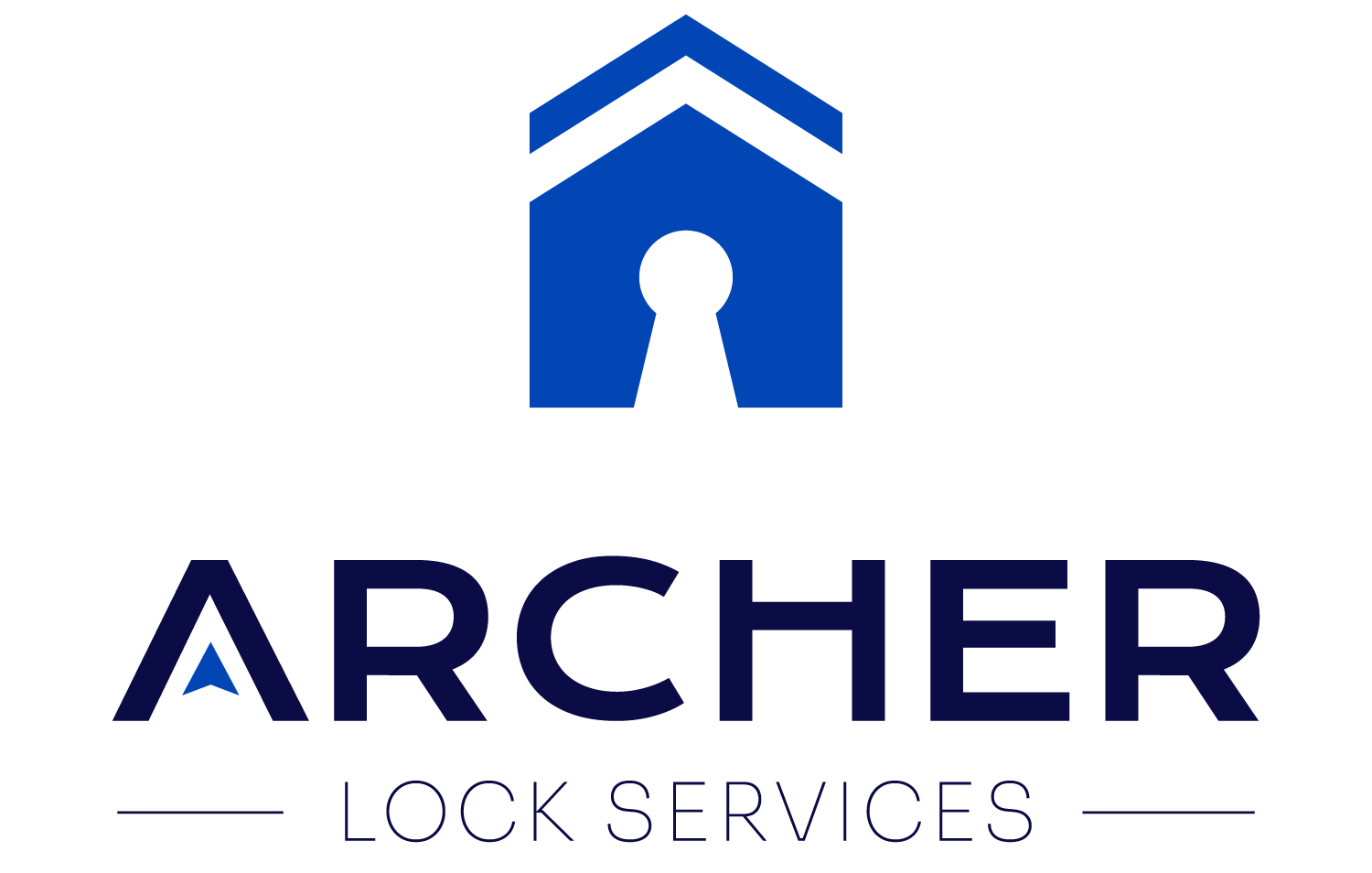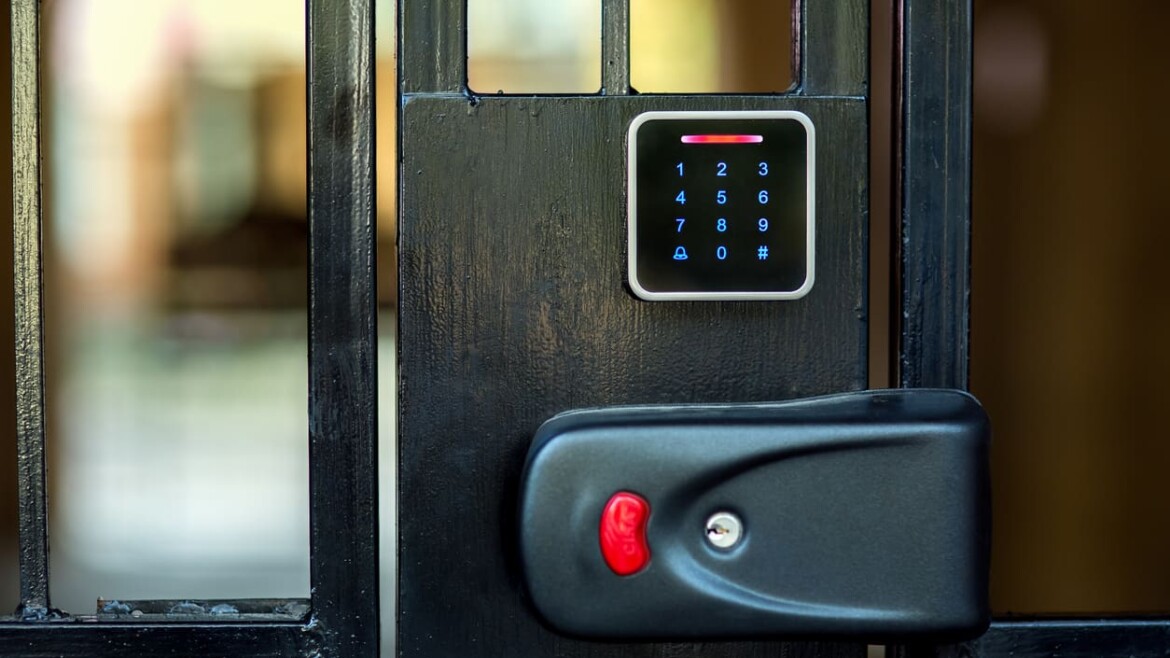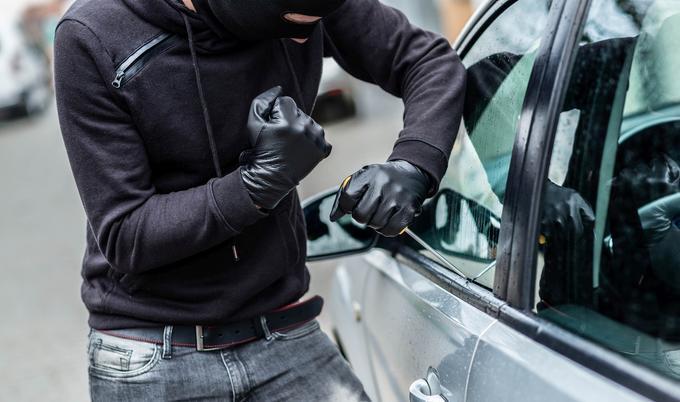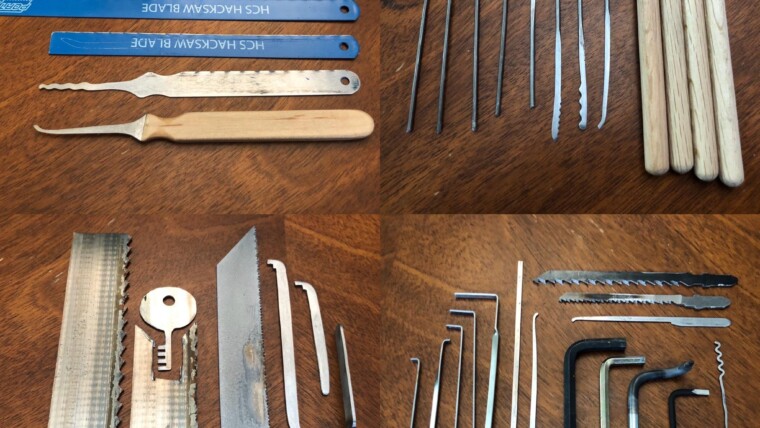Pro and Cons of Electronic vs Mechanical Locks
Hello and welcome to Archer Lock Services! Today I would like to briefly describe the pros and cons of electronic vs mechanical locks from the perspective of a Professional Locksmith in Vancouver. The three main aspects we will discuss today will be as follows:
- Convenience and Ease of Use
- Security and Levels of Protection
- Price and Affordability
As always, if you have any questions or comments, please call or text me at 604-363-2760 or email me at alex@locksmithvancouver.com. If you prefer the personal touch, you can drop by our Key Store at 555 West Hastings St, Vancouver. We are located on the bottom floor of the SFU/Harbour Centre next to the BC Liquor Store. You can find us underneath the escalator leading down to the Harbour Centre Food Court.
Convenience and Ease of Use
In my professional experience, the first and foremost reason why anyone wants an electronic lock over a mechanical lock is the ability to go keyless. I suppose we all have enough stuff in our pockets and bags that eliminating even one thing would be a boon.
Another reason may be that you desire to free yourself from the worry of losing keys or that someone else may have your keys. Without physical keys, all you need to do is remember your 4 to 8 digit entry code. Should you need to change the code, it is normally a far simpler process than to rekey a mechanical lock via a Professional Downtown Vancouver Locksmith myself.
So then are electronic locks far more convenient and easy to use? I think this really depends on the individual person. Before I began using my Yale Nest electronic deadbolt on a daily basis, I was more comfortable with the simplicity of a mechanical lock and key. You simply insert the key into the keyhole and it would lock or unlock the door. Simple and elegant especially when you are a kid with only one key.
However, as I got older, I found my key ring getting heavier with more and more keys. My current key ring has 9 keys on it, but I only use four on a daily basis. Of the remaining five keys, I have used two of them only once in the past 6 months, but they would be annoying to find if lost so I keep them on my keyring anyway.
So every time I want to unlock or lock a door, it takes me a few seconds to fumble through my keys and find the right one. Over a lifetime, we probably spend several hours looking for the right key. As a result, electronic locks claim to eliminate that inefficiency. However, in reality, if you factor in the few seconds it takes a person to punch in the right code into your electronic lock, it probably comes out about the same or just a bit less.
If you were to use a cell phone app via Bluetooth or WiFi to unlock the door, it might take longer than using a mechanical key as you wake the phone, open the app, find the right lock in the app, then wait for the app to pair with the lock and unlock the door.
In fact it takes so much longer to lock and unlock the home doors with the app, that both my wife and I just use the keypad 99% of the time.
So is the convenience and ease of use of an electronic lock that much greater than that of a similarly priced mechanical lock? Personally, I am ambivalent for now. However, my thoughts may change as I get older.
Convenient Locks for Seniors and the Less Abled
I think many of us forget how fortunate we are to be of sound mind and body. Regrettably, some of us are less so. However, even the soundest of mind and body cannot escape the detrimental effects of aging.
As our sight and hand-eye coordination becomes impaired, it could get increasingly more difficult to insert the key into the keyhole. As our motor functions get worse, it can get harder to turn that key to unlock the door.
For Seniors/Elderly clients or for clients with disabilities, the convenience and ease of use features of electronic locks often become must-haves. Brightly lit buttons with large clear numbers with audible cues are greatly welcomed by this portion of my clientele. In addition, these locks can provide caretakers and family members with updates as to the status of the lock.
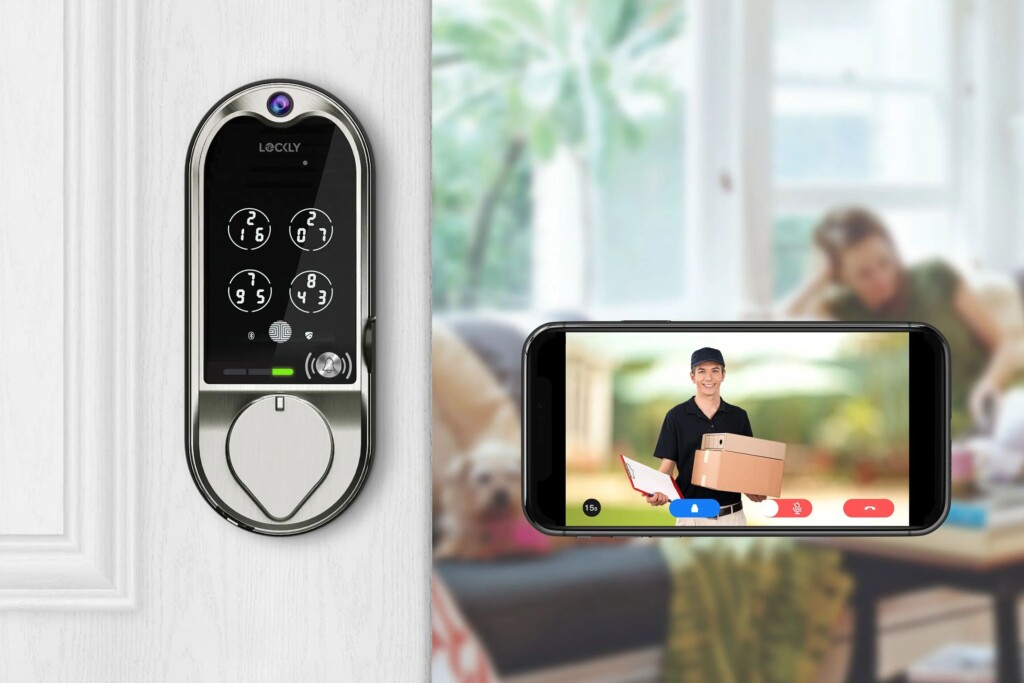
For example, I had a client who asked me to install a Yale Nest Lock for a relative with early signs of dementia. The lock would update the client when the relative came or left the home. Plus it allowed remote access for caretakers and emergency personnel when required.
Security and Levels of Protection
The more years I spend as a Professional Locksmith in Vancouver, the more I realize that the level of security a client needs to feel safe in their home is unique to that client.
I have had clients living in high-property crime areas like East and Downtown Vancouver who want the cheapest and flimsiest locks because they feel they got nothing worth stealing. I also have clients living in areas like Shaughnessy Vancouver who want the cheapest and flimsiest locks because colour and style is more important than anything. Plus they lived in a really “nice” neighbourhood…
In hindsight, both of these types of clients end up usually regretting their choices. The first type of client usually discovers that the theft robs them of the feeling of being safe in their own home. The second type of client usually discovers that thieves will deliberately target “nice” neighbourhoods because residents have stuff worth stealing and the high hedges and landscaping provides great cover.
So how much security do you need? I generally recommend going one step just beyond your comfort level or just a bit above your initial budget.
Psychologically, I find that most clients who spent a bit more than they expected feel good about their purchase decision over time. On the other hand, many clients who spend just below or at the level they expected start to wonder if they spent enough on Security as time goes on.
We are all hoarders in some way so the amount of “stuff” we accumulate in our homes or offices tends to grow over time. I had a startup business client on a shoestring budget that won VC funding and suddenly acquired dozens of laptops for staff among other high target items. That $120 deadbolt they had me install at the beginning of the year suddenly felt grossly inadequate.
In another example, I had a residential client who splurged on a new TV and sound system over Boxing Week. Suddenly he began wondering if the locks he insisted were adequate a year ago were indeed enough.
The first client decided to hold off on upgrading their locks and issued copies of the front door key to all new employees. They walked in one Monday morning to find all the staff laptops had been stolen. Thieves were brazen enough to bring a loading van to steal some of the brand new office furniture as well.
The second client also decided to hold off on upgrading his locks but he called back a few weeks later to place an order for better locks. He could not sleep well at night and felt uncomfortable leaving his home unattended for long stretches at a time. Only when I arrived on site did I realize why. The TV was big and bright enough to be viewed from the Moon. Everyone just walking by his home could see what he was viewing. The client ended up installing Security Film on his windows and thicker blinds as well.
Electromechanical Locks
So when it comes to the level of protection offered by electronic locks vs mechanical locks, the mechanical lock will always reign supreme at the same price point. This leads to the question if there are locks that combine the best of electronic and mechanical locks. That is where electromechanical locks come in.
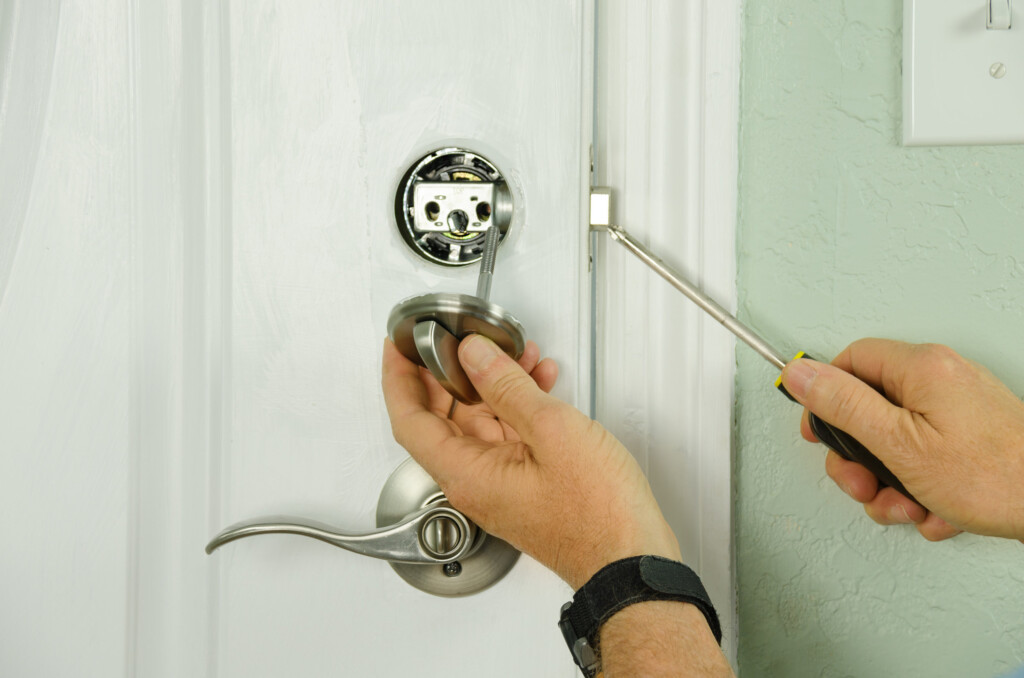
Electromechanical locks like the Abloy Cliq system utilize a key with a built-in RFID chip like a car key. In turn, the lock will have a mechanical lock cylinder with a built-in RFID chip reader. The key will require both the correct mechanical key cuts and the correct chip programming to operate the lock. Simply put, it’s a car key system miniaturized to fit into the housing of your standard door lock with all the security hardening protections of a high security lock.
If it sounds complicated and expensive, it is because it is complicated and expensive. I have not seen this system being deployed outside of the Parliament House building in Ottawa and in some areas of large hospitals that require strict control over opioid-related pharmaceuticals and other controlled substances.
However, if you want the best of both worlds, the Abloy Cliq system does offer it albeit at a very high price point. Most of my clients interested in this system found that it was not the cost of the setup and new cylinders that killed their interest. It was the cost per key that made it unaffordable. At a retail price of $300 per key, it simply was not worth it for them which leads us to the subject of Price and Affordability.
Price and Affordability
Plus if you have read some of my previous articles on good vs cheap locks, you will know that some locks are simply not worth rekeying. Cheap locks are like inkjet printers. Once you have used up the ink that came with it, it’s cheaper to get a whole new printer than to replace the ink cartridges. Horrible for the environment, but lighter on the wallet.
From a convenience and ease of use perspective, cheap mechanical locks may be worth saving because you have gotten used to it and wish to save it. For example, I have clients spend a lot of money trying to save cheap old locks because the patina on the finish matches the rest of the door. Putting a brand new lock may be a shiny glaring difference, but I do remind the client that it would develop a similar patina in a few years anyway.
Electronic locks are always priced higher than mechanical locks at relatively the same ANSI/BHMA level, so our customers are always more incentivized to reuse. My Yale Nest Electronic Deadbolt currently costs ~$400 at Best Buy. At that price point, I can get a lower tier high security deadbolt with restricted keys. However, it offers 5x to 10x the level of protection of the electronic alternative.
Conclusion
Long term, I think we are moving more towards an electronic lock-only future in the residential market. However, the biggest obstacle would be price and affordability. The good electronic locks are simply too expensive for the average homeowner or renter. There are certainly a lot of things worth spending $250 to $400 other than on home security. I had hoped with more and more adoptance, prices will fall but it’s actually the opposite. With inflation, electronic locks and getting more expensive. So for the foreseeable future, mechanical locks are here to stay as they provide better value and security for the money.
In the commercial market, things are even more expensive. While a good quality residential grade electronic lever costs about $300, a good quality commercial grade electronic lever costs closer to $1000 even before considering installation costs. When the bottom line is the primary focus, most clients will choose the cheaper mechanical locks.
If you have any questions or comments, please call or text me at 604-363-2760 or email me at alex@locksmithvancouver.com. If you prefer the personal touch, you can drop by our Key Store at 555 West Hastings St, Vancouver. We are located on the bottom floor of the SFU/Harbour Centre next to the BC Liquor Store. You can find us underneath the escalator leading down to the Harbour Centre Food Court.
